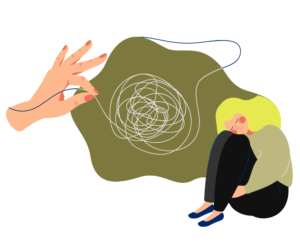Millions of Americans struggle each day with addiction to drugs or alcohol. Unfortunately, of those millions who need addiction treatment, only a small percentage will ever receive the help they need. For many, detox is the first step on the journey to sobriety. Movies and reality have done little over the last couple of decades to ease the concerns many have when considering detox and subsequent recovery.
Why Detox Is a Necessary First Step
Successful treatment requires your body to be “clean” of substances, and for this reason, detox is essential. While quitting “cold turkey” may seem easier or less disruptive to your daily life, it may be far less safe or successful. Detoxing from certain substances can produce dangerous, sometimes fatal withdrawal symptoms, which can be successfully managed as part of a detox program at an addiction treatment center.
Why You Shouldn’t Detox Off Drugs and Alcohol Alone
When you stop or reduce your use of drugs or alcohol, withdrawal symptoms often happen. Depending on the duration and severity of your addiction, as well as which substance(s) you used, withdrawal symptoms will be different. For some, withdrawal symptoms may be mild and easily managed. However, for others, the withdrawal process can result in dangerous and even fatal symptoms.
This is especially true when detoxing from certain substances, including alcohol and opioids. For these reasons, it is essential to complete detox at an addiction treatment facility, where medically assisted detox services are available.
Common Withdrawal Symptoms
The specific symptoms each person experiences during withdrawal may vary, but generally, all withdrawal includes some level of:
- Restlessness and anxiety
- Muscle aches and bone pain
- Gastrointestinal difficulties such as cramping, diarrhea, vomiting, and nausea
- Elevated blood pressure
- Rapid heart rate
- Changes to breathing patterns
- Changes to sleeping patterns
Risks of Alcohol Withdrawal
When detoxing from alcohol, withdrawal symptoms can lead to severe and sometimes deadly complications. The most severe withdrawal symptoms occur in the minority of cases, approximately ten percent. However, should they occur, emergency medical services need to be on hand or readily available.
Some of the more severe withdrawal symptoms that can occur when detoxing from alcohol include seizures, delirium tremens (DTs), and new or worsening psychiatric issues that can lead to erratic and dangerous behaviors. Other acute withdrawal symptoms that can occur include heart attacks, stroke, and respiratory arrest. For these reasons, choosing to detox alone can be dangerous regardless of the substance you are detoxing from.
Benefits of Medically Supervised Detox
At a detox center in northern California, where medically supervised detox is provided, a team of highly trained medical staff can guide you through the detox process. During medically supervised detox, monitoring is provided around the clock. Also, medications can be provided to alleviate the discomfort and risk of specific withdrawal symptoms. Depending on the individual, the detox process typically lasts between three and seven days.
The Risk of Relapse During Detox
Aside from the physical and emotional symptoms of detox, one of the most crucial reasons to choose a drug detox center with medically supervised detox is relapse. Statistics show relapse rates for people in recovery range from forty to sixty percent. The highest percentage of relapse is often found among those trying to detox alone.
How to Find Detox Centers in Northern California
To support and ensure the best chances for success in addiction treatment, it is essential to find the right detox center where you can safely and completely detox. Our treatment programs provide traditional addiction treatments with holistic and alternative therapy options to offer individualized addiction treatment designed to meet your unique needs. Detox is not easy and is even more daunting when attempted without compassionate support. Don’t let addiction take another day. Contact us to begin your journey to sobriety today.




